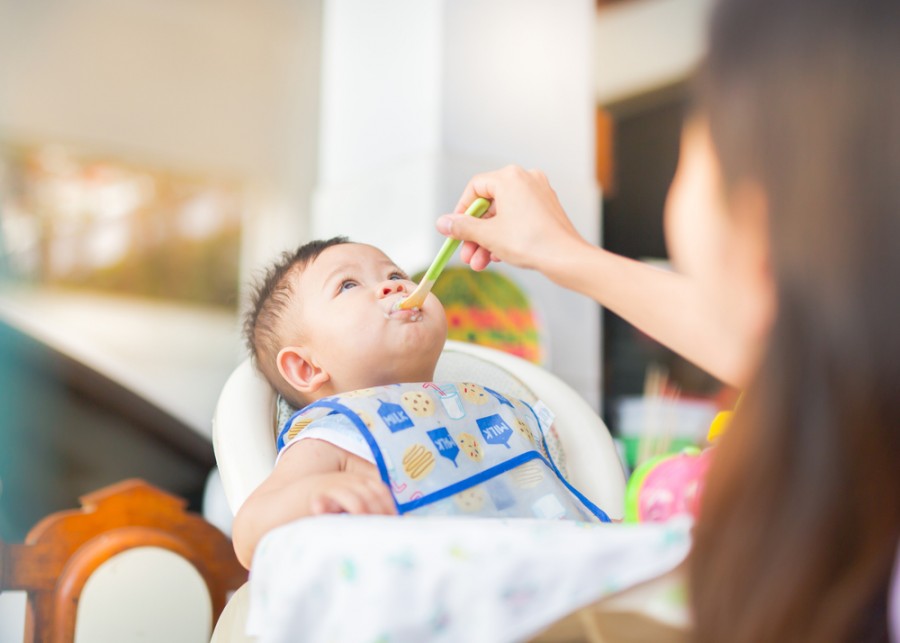Foods to avoid for babies under 1 year
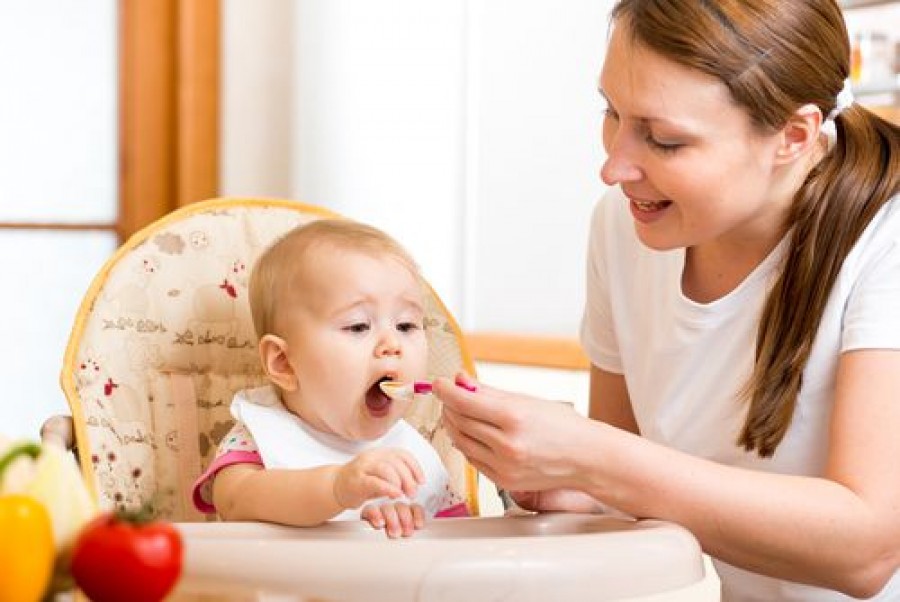
Parents wait desperately for the right time to start solids for their baby. Starting solids is one of the most crucial stages of your baby’s first year of life.
Babies in the infant age tend to get attracted to almost everything they see around them. This is a curious age for your bub where he gets active with all his senses; looks around curiously, grabs and touches things around and more importantly wants to taste whatever he can grab! But, not everything your bub grabs is edible, so care must be taken!
For most new mums, this might be a situation where they would worry, but the experienced ones would consider this an opportunity to develop their baby’s eating habits. Since your baby now wants to taste the first thing he grabs, this is the time to give them the right food to develop their taste.
When starting solids, make your bub grab a few different solid foods one by one and observe your baby’s reaction to the food. Keep an eye on what your baby likes the taste of and the food he repeated throws away. This way you’ll make a list of your baby’s likes and dislikes in terms of food.
However, being a mother, it is important to know the list of foods that your baby likes the taste of, but it is even more important to be aware of the foods that potentially endangers your baby’s health.
Here is the list of foods that a large number of health practitioners suggest to avoid during first year of baby.
Cow Milk
In most cases, health practitioners all around the world suggest breastfeeding infants for at least the first six months. Breastmilk naturally has all the essential nutrients required for the initial development of your baby. Breastmilk not only helps provide the essential vitamins and minerals required for your baby’s growth, but it also helps them protect against developing allergies or catching infections during the first year of their life.
Further, in some cases it is known that feeding your baby with cow milk instead of breastmilk (especially in the initial stages of bub’s life) can have adverse effects on your baby’s health. Cow milk contains minerals that some babies are unable to digest. This, is some cases, may potentially cause harm to your baby’s kidneys.
Moreover, cow milk contains lactose. Some babies (especially under the age of 1 year) tend to show intolerance to lactose which is contained in almost all dairy products. Lactose intolerance may then result into diarrhoea or other allergic reactions in the baby. Therefore, it is always a good idea to visit your doctor/health practitioner and gets advice on whether feeding cow milk to your baby is healthy or is a potential risk to your baby!
Read more about breastmilk vs cow milk here.

Honey
Honey is generally considered beneficial for the adults because of the various benefits. Unfortunately honey may not be equally beneficial for your little one! A large number of health practitioners strongly discourage feeding honey to babies especially during the first year.
One of the major negatives of feeding honey to infants is that it may potentially develop botulism in infants. The reason for this is that, honey may sometimes contain spores of clostridium botulinum. Your baby’s digestive system is not as strong as an adult’s. Botulism may cause serious health issues for babies less than one year of age.
A few symptoms of botulism in babies are:
· Bub unable to suck breast milk properly
· Repeated crying in weak voice (read more on why do babies cry? here)
· Constipation or shows difficulty in passing stool.
Not just honey; a similar health risk is posed to your little one’s health by feeding liquid sweeteners such as corn syrup, corn soup or maple syrup etc. It is therefore highly recommended that you must avoid feeding your bub with honey or like foods without your doctor’s consent.
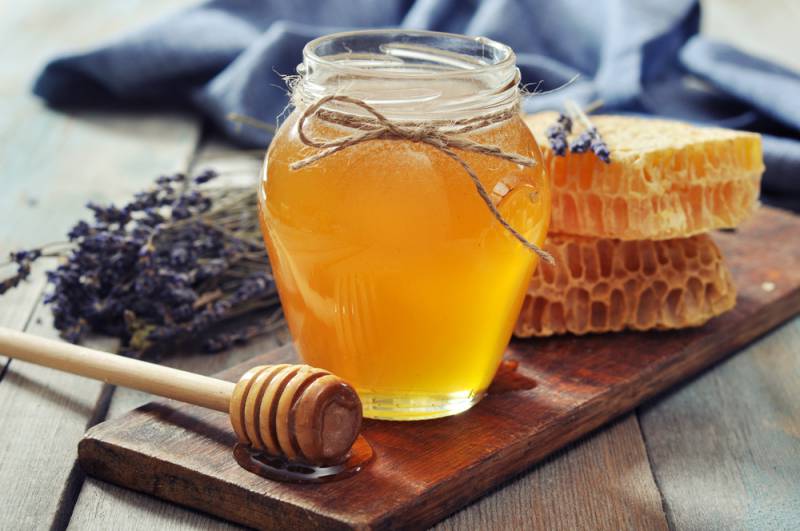
Nuts and Hard foods
Normally, babies under one year of age are unable to bite and chew everything since their teeth are not properly developed yet. It is therefore important to give your baby the foods that will easily break and dissolves in your baby’s mouth.
Foods such as dry fruits or any kind of nuts are harder to bite and chew compared to other foods and are almost impossible for the baby to break in their mouth. And if your baby is unable to break the food in his mouth, this puts your baby in a risk of choking on food.
Similarly, large sized and hard fresh fruits such as grapes, water melon, berries etc should also be avoided. Some uncooked vegetables such as carrots, radishes etc. may also cause a choking hazard for your baby, since such fruits and vegetables contain firm skin on them which is not possible for the baby to chew.
However, if you still wish to feed one or more of such foods to your baby, it is highly recommended that you wait for a few months. You can give all these foods to the baby once they get molars at the age of around twelve to thirteen months. Even then, make sure you chop such foods into tiny swallow-able/bite-able pieces and then serve it to your little one!
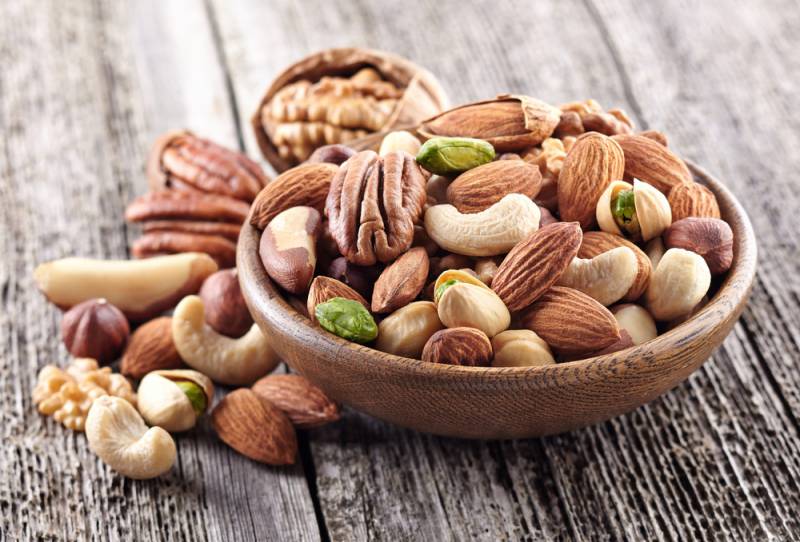
Fruit Juices
Fruit juices, although categorized as an healthy food option for normal healthy adults, are not so much recommended for babies this age! Remember, this is the age you want your baby to be eating healthy and growing healthy. Fruit juices contain a large number of calories and don’t even contain the essential nutrients required for your baby’s growth. Fruit juices may be tasty and your bub might love drinking it, but is it giving your baby the energy it needs at this age? Probably not!
The healthy growth of your baby requires a essential nutrients such fiber, calcium, fat, vitamin D etc. none of which is provided in enough quantity by fruit juices.
Further, due to the high sugar content in fruit juices, feeding excessive fruit juices may also cause tooth decay and other teeth related problems in babies. It is therefore that, in normal cases, doctors and health practitioners strictly forbid babies less than the age of six months to be fed with fruit juices. Even after the age of 1, fruit juices should only be allowed to be baby in limited quantities.
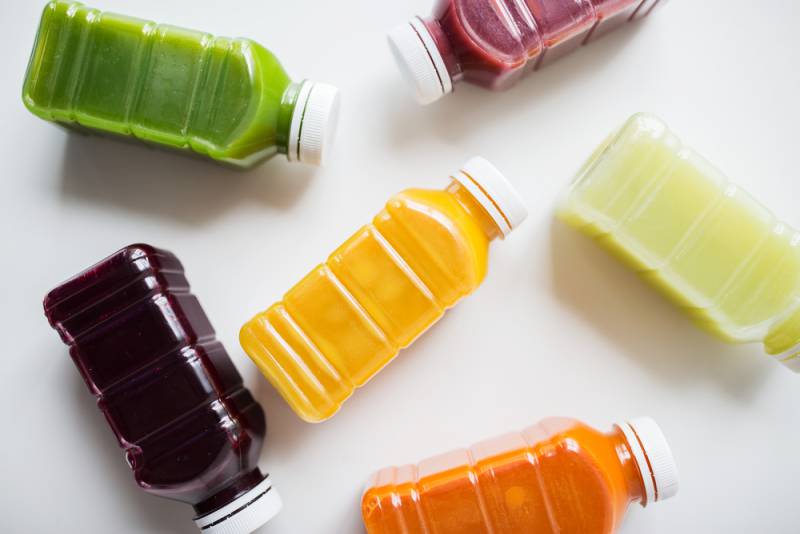
Processed Grains
No doubt grains are good for baby’s health. Most grains are rich in fiber which helps your baby develop a better metabolism and digest food well.
However, refined or processed grains lose most of their natural benefits; therefore it is no good to give to babies. You may however, feed whole grains to babies in a variety of forms such as cereals, crackers, bread, soups and pasta etc. White grain is processed grain which should be replaced by whole meal grains in your baby’s diet since it helps your baby develop a healthier eating habit as they grow.
Sugar Products
This one is a no-brainer in the modern age. Even healthy adults in this modern age try to cut down sugar and this not just to loose weight but because, as tasty as it is, sugar has heaps of health negatives. Feeding babies with sugar and sugar products in excessive quantities is not recommended by health practitioners. Excessive sugar feeding poses risks to your baby’s health and may cause diabetes and other health issues in babies in the long run. It should be avoided at least for the first 2 years of your baby.
Moreover, when at this “taste developing age”, it is a good idea to develop your baby’s tastes to various other flavours such as tangy or salty foods, rather than sweet flavor. Most babies are naturally attracted to sweets such chocolates and candies regardless. Keeping babies away from sweets at this stage can help them develop healthy eating habits and also helps them stay protected from tooth decay.
Further, hard sweets and candies should be avoided strictly as they may cause a potential choking hazard for your baby. Stick to feeding baby soft fresh fruits to babies, that contain ‘no added sugar’ and are naturally sweetened. You can serve fruits to your baby in small chew-able pieces or in puree form.
Unpasteurized Foods
Remember how raw foods such as raw eggs and other not-fully-cooked food during pregnancy is a no go for pregnant mothers since your body is sensitive during pregnancy. Similarly, your bub is super sensitive at this age.
Since unpasteurized food may contain bacteria that can be dangerous for your baby’s health; unpasteurized food should be avoided in your baby’s diet. Again, your baby’s immune system is in the developing age and may not be able to fight with dangerous viruses and bacteria. In some cases, feeding unpasteurized foods to babies has resulted in life threatening medical issues in babies. Therefore, be wise and keep unpasteurized foods away from your baby’s diet and if you are unsure, please get the best medical advice by your medical practitioner/health professional.
Helpful Tips(s)
Make a list of foods your baby likes and dislikes in terms of taste
Make a list of foods that may cause a potential health risk to bub
Consulting with your baby’s paediatrician as well as nutritionist is very important before following a food plan for babies, especially under the age of 1 which is a sensitive time for your baby.
It is also important to check for your baby’s allergies or intolerance, as trying new food without knowing such health issues can put your baby’s health at risk. Monitoring bub’s reaction to foods and regular bub visits to the doctor can help identify possible allergies and intolerance.
Your nutritionist may be able to suggest substitute products for your baby in case of possible baby allergies. Moreover they can also help you by providing guidance on how to handle your baby’s food allergies in case of emergencies.
Knowing about giving the right foods at the right time to your baby, helps your baby develop a stronger immune system and grow well.


